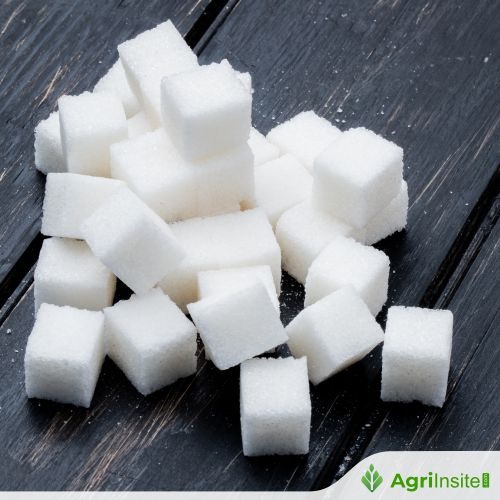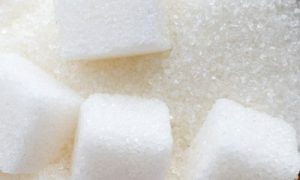Sugar price surge: FBR willing to share info with NA panel

Pakistan’s National Assembly panel probed sugar price hikes as FBR reported a 56% tax rise from sugar mills and offered full disclosure of penalized mills. Officials cited low sucrose yields, alleged monopolies, and manipulation in exports. Debate centered on deregulation, competition, and transparent ownership data to curb cartel control.
ISLAMABAD: The Federal Board of Revenue (FBR) on Tuesday expressed willingness to share detailed information about sugar mills with the National Assembly panel, including strict monitoring measures and potential stock takeover mechanisms.
“We want to present the full facts regarding sugar prices, including the names of sugar mills that have been penalized. Tax collection from the sugar sector has increased from Rs 65 billion to Rs 100 billion — a 56 percent rise — despite low sucrose content,” said Dr Hamid Ateeq Sarwar, Member (Strategic Transformation) FBR, while briefing the National Assembly panel headed by Atif Khan.
The panel, which includes MNAs Tahira Aurangzeb, Mirza Ikhtiar Baig, and Shahida Rehmani, was tasked with investigating the recent surge in sugar prices and examining the patterns of sugar export and import over the years.
Two PTI MNAs Usama Ahmed Mela and Mobeen Arif also participated as special invitees, demanding a chronological explanation for the price hikes. They claimed that a group of 25–40 individuals effectively control the entire sugar sector.
Dr. Sarwar stated that FBR teams are continuously monitoring sugar stock releases using the track and trace system. He noted the immense influence of sugar dealers, claiming that a single dealer can book the entire stock from five mills.
He proposed that the panel invite the Chairman of the Sugar Sector Deregulation Committee, Sardar Awais Ahmed Khan Leghari, to provide input on long-term strategies.
“When the sugar sector is deregulated, the number of mills may drop from the current 78 to around 40. These mills can then operate year-round by importing raw sugar and re-exporting it—similar to the UAE model,” Dr. Sarwar added. He emphasized that Pakistan appears to be moving in that direction through deregulation.
Regarding shareholder data, Dr. Sarwar said that the SECP had submitted a combined list of 190 companies, rather than focusing solely on sugar mills with shareholders holding over 20 percent stakes. Among the mills mentioned were Ramzan Sugar Mills and Arabia Sugar Mills, owned by the sons of Prime Minister Shehbaz Sharif.
MNA Tahira Aurangzeb (PML-N) described the price hike as a “huge manipulation,” stressing that the issue is not one of supply shortage but of inflated pricing.
Panel Convener Atif Khan criticized the lack of clarity in the information provided. “We asked for a list of sugar mills, but received a mix. We didn’t request dealers’ names,” he said. “We deserve a complete list—every sugar mill, every owner. No more shadows. No more secrets. This sugar problem isn’t new. It’s been eroding our system for decades. Even during General Ayub’s era, there were chants of ‘sugar thieves.’ These people aren’t just businessmen—they’re politicians, lawmakers. They help write the very laws they manipulate.”
Responding to a question, Dr. Sarwar clarified that GST has been removed only on imported sugar, along with the input tax. However, an 18 percent GST still applies to local sugar. He also revealed that this year’s sugarcane output reached 60 million metric tons (MMT), but the sucrose content was only 6.9 percent, far below the expected 10 percent yield. He added that when production is in surplus, growers suffer. Last year, they sold sugarcane for as low as Rs 550 per 40 kg.
Usama Ahmed Mela raised the issue of wheat, noting that while exports are banned due to supposed abundance, sugar—despite being in short supply—is still being exported. “If wheat is abundant and can’t be exported, why is scarce sugar being sent out of the country?” he asked.
Atif Khan reiterated his stance: “This won’t end until we deregulate the sugar industry. Let anyone build a sugar mill. Bring in competition.” His voice grew firmer. “New players will bring new prices—and lower ones. Right now, it’s a monopoly.”
Joining via Zoom from Karachi, Mirza Ikhtiar Baig stressed the need to investigate irregularities in sugar import and export. “Were these mistakes—or deliberate manipulation?” he asked.
A representative from the Trading Corporation of Pakistan (TCP) informed the panel that the landed cost of imported sugar ranges between $555 and $586 per ton, averaging $559, which translates to Rs 168.50 per kg. With transport and other costs around Rs 10 per kg, the final cost is approximately Rs 180 per kg.
Dr. Sarwar pointed out the inefficiencies in the current import process: “We need to rethink the entire mechanism. Just shipping costs $60 per ton. When we imported from India, it was only $10.” He suggested sea routes as a viable alternative. “It’s time,” he added. “The only real solution is deregulation.”
In conclusion, Panel Convener Atif Khan directed SECP officials to provide a complete list of sugar mills, their owners, and all shareholders holding more than 20 percent equity.
To Read more about Sugar Industry continue reading Agriinsite.com
Source : Business Recorder















